#titan c
Explore tagged Tumblr posts
Text

Whoever conceived and animated this moment, I hope they're doing well and thriving. This is S-rank romance stuff here.
#the ship overall is C to A tier#but it's things like THIS that push it up toward the A#titan ae#titan a.e.#cale#akima#it just...#starts with them chilling together being comfortable in each other's space#that would be enough that's a point there#then she goes and HANDS HIM THE SANDWICH SHE'S EATING#sharing their food#that's another one#and she does it because his hands are busy so he can't feed himself#so that's a third point#and she does it WITHOUT LOOKING AT HIM which is a FOURTH point#and he bites into it without request or invitation so that's a FIFTH point#and then he TAKES THE WHOLE SANDWICH AND GULPS IT DOWN LIKE A LIZARD#which is a SIXTH point#and jumps it up to SEVEN because she pulls her fingers free and finally looks at him and yells at him#IT'S A SEVEN-POINT ROMANCE COMBO#do you know how utterly rare those are?#those are generally earned through KISS scenes where the hands move and the heads touch and maybe there's a spin#they achieved a seven-point romance combo by SHARING A SANDWICH#fixing machines and sharing lunch URRRRRRRRRRRRGHHHHH
61K notes
·
View notes
Text
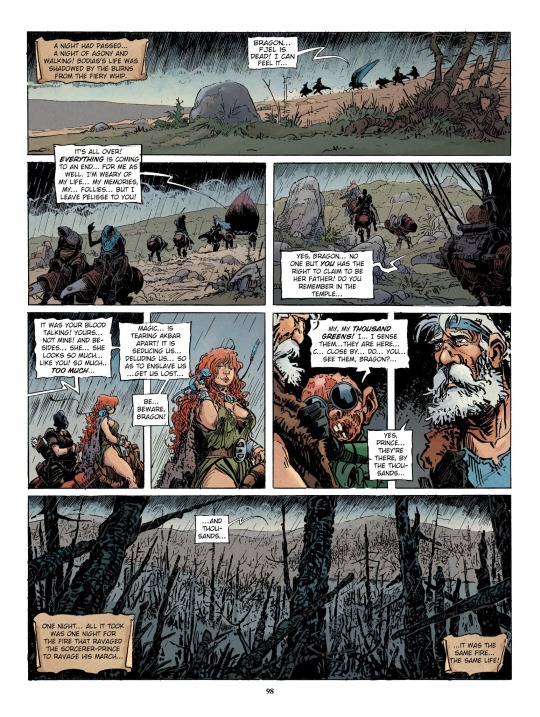
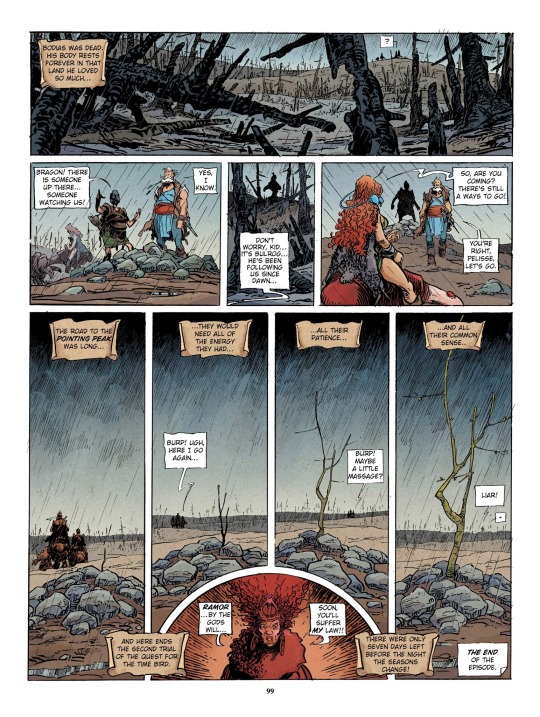
The Quest For The Time Bird: The Temple of Oblivion
by Serge Le Tendre and Régis Loisel
NBM and Titan Comics
1 note
·
View note
Text


happy pride month from the titan army
#pjo#riordanverse#luke castellan#ethan nakamura#alabaster torrington#alabaster c torrington#also ft the world's tiniest chris#titan army#my art
411 notes
·
View notes
Text
Hey, does anyone remember that one episode of the OG teen titans where it was that contest of champions or whatever? Becuase...
"Welcome, champions all! I am the Master of Games, and you are hereby invited to compete in the Tournament of the Strongest! Each of you have been specially chosen as the smartest and strongest each species has to offer."
"Hey, isn't that a fourteen-year-old?"
#dc x dp#dpxdc#dcxdp#dp x dc#c: danny fenton#teen titans#i'm just imagining this as the best of the best#batman's there aquaman's there wonder woman's there#along with a ton of villains too#and then there's danny who looks like a wet sock of a human boy#is danny there representing ghosts or halfas#bc if he represents halfas then who is representing ghosts#the strongest of ghosts... pariah dark???#but if he's representing ghosts then vlad must be representing halfas#“The Champion of Ghosts Pariah Dark... was not invited because screw that guy!”
5K notes
·
View notes
Text
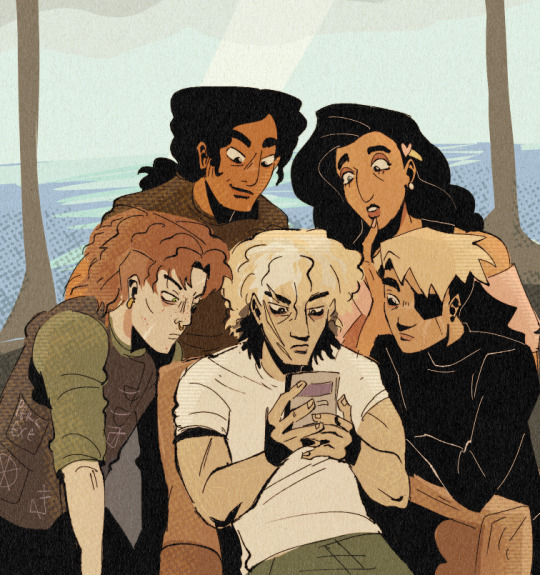
that one image of the mom beating the mario level. you know the one
#someone compared them to ducklings in the titans army server. 10/10#luke is the expert of being handed a gameboy and smoking a hard mario level when asked#titans army#luke castellan#alabaster torrington#alabaster c torrington#ethan nakamura#chris rodriguez#silena beauregard#percy jackson#percy jackon and the olympians#percy jackson and the olympians#heroes of olympus#riordanverse#hoo#my art
2K notes
·
View notes
Text
The Battle of Manhattan didn’t go the way the Fandom thinks it did; we need to address the “massacre” of the Titan Army!
The Battle of Manhattan is the most pivotal event of the first series. And we see the entire thing exclusively from Percy’s point of view. He takes us through the thickest of the fight from one end of Manhattan Island to the next, and shows us a desperate fight of good against evil.
But we have another point of view for the battle, one that comes from the demigods of the Titan army, and one that informs us of a far different, darker side to the conflict. One where an entire army of children is massacred by the victorious Olympians, without a thought or even a care. It’s a shocking, confronting side of the struggle that most fans don’t seem to be aware of.
But it’s also completely inaccurate.
Now I love Alabaster; he’s one of my favorite characters, and I want nothing but the best for him. But he’s a demonstrably unreliable narrator. I don’t even mean that he’s intentionally dishonest; but he’s very badly misinformed about what actually happened. And that gives the fandom three major misconceptions that need to be cleared up.
Alabaster gets the casualty ratio for the battle wrong (the Olympians had more than he thinks).
The Titan army has far fewer demigods than most fans think (not much more than 50 at the most).
Alabaster does say that there was a “massacre” at the end of the battle, but most of the TA demigods had deserted before that!
Part 1) The Olympians Have High Casualties
“It was a massacre. If I remember right, my mother told me that Camp Half-Blood and its allies had sixteen casualties total. We had hundreds.” (pg 219)
This is the only time we get a specific number for Olympian casualties, but it just doesn’t match up with what actually happens in the books. Looking back at all the deaths we do see:
Charlie Beckendorf -1
one [Hellhound] got hold of an Apollo camper and dragged him away. I didn’t see what happened to him next. I didn’t want to know. (pg 182) -1
Michael Yew -1
A young dragon had appeared in Harlem, and a dozen wood nymphs died before the monster was finally defeated. (pg 203) -12
“We lost twenty satyrs against some giants at Fort Washington,” [Grover] said, his voice trembling. (pg 203) -20 Giants smashed through trees, and naiads faded as their life sources were destroyed. (pg 243) -1< Enemy archers returned fire, and a Hunter fell from a high branch. (pg 244) -1 Too many of our friends lay wounded in the streets. Too many were missing. (pg 257) -1< The flagpoles were hung with horrible trophies –helmets and armor pieces from defeated campers. (pg 282) -1< The Drakon lashed out, swallowing three californian centaurs in one gulp before I could even get close. (pg 288) -3 Poison spewed everywhere, melting centaurs into dust along with quite a few monsters, (pg 288) -1< The Drakon snapped up one Ares camper in a gulp. (pg 291) -1
Silena Beauregard -1
Leneus -1
a body covered in the golden burial shroud of Apollo’s cabin. I didn’t know who was underneath. I don't want to find out. (pg 303) -1
Oddly enough, we actually miss the moment that was probably the worst for the Olympians, the final push by Kronos that breaks through their line. After Clarisse slays the drakon and the monsters are driven back again, Percy and co. take the opportunity to go up to Olympus. Percy gives Pandora’s Pithos to Hestia, and then contacts Poseidon via his throne. It’s just as he finishes that Thalia comes up and tells them that Kronos is coming again, but they miss the fighting.
By the time we got to the street, it was too late. Campers and Hunters lay wounded on the ground. Clarisse must have lost a fight with a Hyperborean giant, because she and her chariot were frozen in a block of ice. The centaurs were nowhere to be seen. Either they’d panicked and ran, or they’d been disintegrated. (pg 312) -<500
And finally, Kronos does kill some people on Olympus itself.
A few minor gods and nature spirits had tried to stop Kronos. What remained of them was strewn about the road: shattered armor, ripped clothing, swords and spears broken in half. (pg 322) -1<
The specific deaths we have mentioned during the battle amount to 48 at the very least; and that is an extremely conservative estimate that only includes the deaths Percy has the time and presence of mind to witness in all the carnage. Considering how many others must have happened, factoring the sudden disappearance of the 500 centaurs in particular, it was likely in the hundreds. And most of the centaurs probably ran at the end, but even that would have involved heavy casualties.
It’s true that actual demigods were a smaller fraction of Olympian forces, and so would have made up just a fraction of losses. The number 16 might actually make sense if it were just the number of campers lost, but that’s not what Hecate said, she said total.
It might be significant that Hecate is the actual source of this misinformation. Would she have reason to lie to her own son, or might she herself be out of the loop. Right now, we just can’t know.
And she might be underestimating Titan Army losses too. Considering how many times a wave of several hundred monsters tear into Manhattan, and get thrown back by the Olympians only to return later with no discernable drop in numbers, until the army is finally routed entirely, it wouldn’t surprise me if the TA actually took a thousand or more casualties. But those would be overwhelmingly monsters, because:
Part 2) Less Than Fifty Demigods Were Even In The Titan Army
To prove that there could not possibly have been hundreds of TA demigods killed at Manhattan, we need look no farther than Alabaster's own account.
“There was a war between the gods and titans last summer and most half-bloods–demigods like me–fought for the Olympians.” (pg 218)
So the TA could not have had more demigods than the Olympians; and they had about a hundred. There are forty campers to start with, who are quickly joined by the Hunters, who now have thirty members. Then, in the last hours of the fight, they are finally joined by the Ares cabin, which brings another thirty (jeez Ares, you animal!). So Olympus has an even hundred demigods. (The Hunters aren’t necessarily all demigods by birth, but I don’t think Alabaster would make a distinction based on that.)
So the TA has less than a hundred demigods, significantly less. I would argue they probably had no more than fifty because that lines up with the only solid numbers we ever get for them. And every time the TA is described, demigods are a clear minority. First, look at the foes Percy encounters when he infiltrates the Princess Andromeda:
I saw monsters patrolling the upper decks of the ship–dracaenae snake-women, hellhounds, giants, and the humanoid seal-demons known as telkhines . . . . . “I don’t care what your nose says!” snarled a half-human half-dog voice—a telkhine. “The last time you smelled half-blood, it turned out to be a meatloaf sandwich!” “Meatloaf sandwiches are good!” a second voice snarled . . . . . a telkhine was hunched over a console . . . . . a half dozen telkhines were tromping down the stairs . . . . . past another telkhine . . . . . And in the fountain squatted a giant crab . . . . . a couple of dracaenae slithered across my path . . . . . As I was running up the stairwell, a kid charged down . . . . . Laistrygonian giants filed in on either side of the swimming pool . . . . . demigod archers appeared on the roof . . . . . two hellhounds leapt down . . . . . The crowed of monsters parted . . . . . Giants jeered. Dracaenae hissed with laughter . . . . . throwing monsters off their feet . . . . .I knew him, of course: Ethan Nakamura . . . . . two giants lumbered forward . . . . . Panicked monsters surged backward . . . . . one of the dracaenae hissed . . . . . I pushed through a crowd of monsters . . . . . Monsters yelled at me from above.
That was a quick summary of all the enemies Percy and Charlie encounter on the Princess Andromeda, I’m not crazy enough to try and write the whole chapter. But it’s pretty clear there are only a few demigods amid dozens of monsters. We hear the same thing from Poseidon later, that “there were only a few demigod warriors aboard that ship”; we might question whether or not Poseidon is a trustworthy source, but the evidence does back him up.
When we finally get to the battle, the disparity of demigod numbers in the TA is again evident:
The bronze image showed Long Island Sound near La Guardia. A fleet of a dozen speed boats raced through the dark water toward Manhattan. Each boat was packed with demigods in full Greek armor. At the back of the lead boat, a purple banner emblazoned with a black scythe flapped in the night wind. I’d never seen that design before, but it wasn’t hard to figure out: the battle flag of Kronos. “Scan the perimeter of the island,” I said. “Quick.” Annabeth shifted the scene south to the harbor. A Staten Island Ferry was plowing through the waves near Ellis Island. The deck was crowded with dracaenae and a whole pack of hellhounds. Swimming in front of the ship was a pod of marine mammals. At first I thought they were dolphins. Then I saw their doglike faces and swords strapped to their waists, and I realized they were telkhines—sea demons. The scene shifted again: the Jersey shore, right at the entrance of the Lincoln Tunnel. A hundred assorted monsters were marching past the lanes of stopped traffic: giants with clubs, rogue Cyclopes, a few fire-spitting dragons, and just to rub it in, a World War II-era Sherman tank, pushing cars out of the way as it rumbled into the tunnel. (pg 167)
Here we see the first wave of the Titan Army as a three pronged attack (which Percy says on the next page collectively numbered at least 300) and only one of the units has demigods. It’s the one that Kronos leads, so it’s probably meant to be a more elite unit, at least at first.
We don’t know for sure how many there are. Speedboats are usually made to carry 4-6 people so a dozen would be possible 48 to 72. Considering Alabaster says there were significantly less demigods in the TA than the Olympians, I would guess it’s on the lower end; and that does match another number we see in a moment.
This fleet never reaches Manhattan, since Percy bribes the East River to swamp their boats. Those who say many TA demigods were killed in the battle might point to this as Percy causing a bunch of kids to drown; but Alabaster never mentions a mass drowning in his narrative of the battle, and he would have been on one of those boats, so it’s safe to say they just went for a swim.
(And Kronos was with them, which means that a very angry titan lord was suddenly pitched into the river and had to swim with the rest of them. That’s not really relevant, I just want everyone to know that.)
Percy is then immediately told that “Another army is marching over the Williamsburg bridge.” This fourth prong of the attack, led by the Minotaur, also has no demigods in it.
An entire phalanx of dracaenae marched in the lead . . . About a hundred more monsters marched behind them. (pg 182) More monsters surged forward —snakes and giants and telkines—but the Minotaur roared at them, and they backed off. (pg 186)
But more monsters keep advancing because by the time Percy kills the minotaur and the demigods charge and rout the whole group, it had grown to 200
Finally, the monsters turned and fled—about twenty left alive out of two hundred. (pg 188)
So the grand total for the first TA attack was 500 soldiers or more, with only 40-70 of them demigods. And after the monsters on the Williamsburg bridge retreat, those demigods show back up.
Then I saw the crowd at the base of the bridge. The retreating monsters were running straight toward their reinforcements. It was a small group, maybe thirty or forty demigods in battle armor, mounted on skeletal horses. One of them held a purple banner with the black scythe design. The lead horseman trotted forward. He took off his helm, and I recognized Kronos himself, his eyes like molten gold. (pg1 188)
This is the only time we get anywhere close to a specific number when TA demigods are concerned. It would have been the same group that was sunk in the East River, who then had to swim for Brooklynn; which is where they are now trying to take the Williamsburg bridge. This reinforces the idea that the number of demigods in the boats was only a little more than forty, since they would not have suffered more than a few injuries in the sinkings.
I’m going to come back to this moment later to demonstrate how Percy refrains from killing other demigods, even in his Achilles state, but the other important thing to note is that this is the last time Kronos organizes his demigods into a unit that he leads personally. After they fail to break through here, Kronos just has them take on a secondary role, and puts his faith in bigger and bigger monsters to lead the charge instead.
The Titan Army units on Long Island then spend the evening marching the long way around Manhattan (for some reason) because they make camp for the night in New Jersey, at Medusa’s old lair. Percy again describes demigods as the small minority.
Hundreds of tents and fires surrounded the property. Mostly I saw monsters, but there were some human mercenaries in combat fatigues and demigods in armor too. A purple-and-black banner hung outside the emporium, guarded by two huge blue Hyperboreans.
And this is only part of the Titan army, because there are more troops north of Manhattan.
“Tell my brother Hyperion to move our main force south into Central Park. The halfbloods will be in such disarray they will not be able to defend themselves.” (pg 237)
The army that marches into central park is bigger than the one camped in New Jersey. And it is made up exclusively of monsters.
At the north end of the reservoir, the enemy vanguard broke through the woods—a warrior in golden armor leading a battalion of Laistrygonian giants with huge bronze axes. Hundreds of other monsters poured out behind them. (pg 243)
There is not a single mention of a demigod. However they’re already joining the fight in other places.
When it flew above the rooftops, I could see fires here and there around the city. It looked like my friends were having a rough time. Kronos was attacking on several fronts. (pg 251)
After Percy kills the Clazmonian Sow, the momentum of the battle shifts. With his main force failing to deliver a knockout punch, Kronos has his remaining armies spread out to put equal pressure on the entire defensive line, and catch it in a massive envelopment.
Midtown was a war zone. We flew over little skirmishes everywhere. A giant was ripping up trees in Bryant Park while dryads pelted him with nuts. Outside the Waldorf Astoria, a bronze statue of Benjamin Franklin was whacking a hellhound with a rolled-up newspaper. A trio of Hephaestus campers fought a squad of dracaenae in the middle of Rockefeller Center . . . . . The hunters had set up a defensive line on 37th, just three blocks north of Olympus. To the east on Park Avenue, Jake Mason and some other Hephaestus campers were leading an army of statues against the enemy. To the west, the Demeter cabin and Grover’s nature spirits had turned Sixth Avenue into a jungle that was hampering a squadron of Kronos’s demigods . . . . . I spotted a familiar silver owl banner in the southeast corner of the fight, 33rd at the Park Avenue tunnel. Annabeth and two of her siblings were holding back a Hyperborean giant . . . . . The next hour was a blur. I fought like I’d never fought before—wading into legions of dracaenae, taking out dozens of telkines with every strike, destroying empousai and knocking out enemy demigods . . . . . At one point Grover was next to me, bonking snake women over the head with his cudgel. Then he disappeared in the crowd, and it was Thalia at my side, driving monsters back with the power of her magic shield. Mrs. O’Leary bounded out of nowhere, picked up a Laistrygonian giant in her mouth and flung him like a Frisbee. Annabeth used her invisibility cap to sneak behind enemy lines. Whenever a monster disintegrated for no apparent reason with a surprised look on his face, I knew Annabeth had been there . . . . . Kronos was riding towards us on a golden chariot. A dozen Laistrygonian giants bore torches before him. Two Hyperboreans carried his black-and-purple banners . . .
“THEN THE WINGED HUSSAARSSS AARRRIIIIIIIIIIIIIIIVVVVVVED” SABATON BLASTS ON ELECTRIC GUITAR
Sorry, sorry, I mean then Chiron and the 500 centaurs arrived!
Kronos’s forces looked as confused as we were. Giants lowered their clubs. Dracaenae hissed. Even Kronos’s honor guard looked uneasy. Then, to our left, a hundred monsters cried out at once. Kronos’s entire northern flank surged forward. I thought we were doomed, but they didn’t attack. They ran straight past us and crashed into their southern allies . . . a shower of arrows arced over our heads and slammed into the enemy, vaporizing hundreds of demons. (pg 258)
This is how the second phase of the battle ends. And during the entire night, out of a sea of monsters (hehe) we only see one unit of TA demigods. And it’s the last time we get any reference to them participating in the battle.
After being driven south, the TA apparently did another long march, because they make camp northeast of Manhattan.
The Titan army had set up camp all around the U.N. complex. The flagpoles were hung with horrible trophies—helmets and armor from defeated campers. All along First Avenue, giants sharpened their axes. Telkines repaired armor at makeshift forges. (pg 282)
Ethan is the only demigod mentioned this time. And he doesn’t appear to take part in the next attack, aside from releasing the drakon. We get less of a description of the enemy army this time, but it’s all monsters.
The rest of the battle wasn’t going well. The centaurs had panicked under the onslaught of giants and demons. An occasional orange camp T-shirt appeared in the sea of fighting, but quickly disappeared. (pg 289)
Of course the Ares cabin arrives, the drakon kills Silena, and Clarisse kills it. It’s another rout for the TA.
The monsters retreated toward 35th Street. (pg 298) There was no answer from the enemy. Slowly, they began to fall back behind a dracaenae shield wall, while Clarisse drove in circles around Fifth Avenue, daring anyone to cross her path. (pg 299)
After that we have the final phase of the battle, when the Titan Army finally breaks through the Olympian lines. But once again, we have no reference to demigods other than Ethan.
The Titan Army ringed the building, standing maybe twenty feet from the doors. Kronos’s vanguard was in the lead: Ethan Nakamura, the dracaenae queen in her green armor, and two Hyperboreans. I didn’t see Prometheus. (pg 312) “ROWWF!” Mrs. O’Leary bounded toward me, ignoring the growling monsters on either side. (pg 315) There were thousands of [skeletan soldiers], and as they emerged, the titan’s monsters got jumpy and started to back up. (pg 315) The armies of the dead clashed with the Titan’s monsters. Fifth Avenue exploded into absolute chaos. Mortals screamed and ran for cover. Demeter waved her hand and an entire column of giants turned into a wheat field. Persephone changed the dracaenae spears into sunflowers. Nico slashed and hacked his way through the enemy, trying to protect pedestrians as best as he could. My parents ran toward me , dodging monsters and zombies, but there was nothing I could do to help them. (pg 318).
The fight continues like this, until Typhon is destroyed, and the defenders are joined by the gods, and Poseidon’s army of cyclopes. It’s then that the Titan army is “massacred.” Most of the fandom thinks that the demigods were killed too, but that’s not the case.
PART 3: The TA Demigods Deserted Before The Final Battle
As Alabaster remembers it:
the war didn’t go our way. I fought on the battlefield against the enemy, but most of our allies ran. Kronos himself marched on Olympus, only to be killed by a son of Poseidon. After Kronos’s death, the Olympian gods smashed any remaining resistance. It was a massacre. “We weren’t all destroyed,” Alabaster said. “Most of the remaining half-bloods fled or were captured. They were so demoralized they joined the enemy. (pg 219)
When you look at this narrative, and compare it to The Last Olympian, it’s actually more complicated than the TA demigods simply getting massacred.
Al says that while he was fighting, most of his allies ran. That’s odd, because we don’t see the relative numbers of monsters go down at any point. What we do see, is the number of demigods go down.
As I illustrated in Part 2, the Battle of Manhattan has four distinct phases. Phase one, that ends when the Williamsburg Bridge is destroyed. The second phase, that starts when Hyperion attacks Central Park, and ends when the Party Ponies arrive. The third phase, which is all about the attack of the drakon. And the final phase, when Kronos breaks through.
We only see TA demigods in the first two phases; they attack the Williamsburg Bridge in the first phase as part of the Kronos’s main force, then in the second phase they’re relegated to a supporting role by hitting the defenders western flank. And that’s the last we see of them. After that, Etahn is the only demigod left standing in the TA. Alabaster must be somewhere in the background, as a retcon, but there’s no one beyond the two of them.
You might think that they’ve just already been killed by this point. After all, Percy blows up the Princess Andromeda, then goes into an Achilles Curse fueled berserker mode several times in the first two phases of the battle. Surely he must have killed hundreds of kids, right?
No, not even close.
Maybe not any at all.
On the Princess Andromeda Percy finds lots of monsters, but the number of demigods he finds could be counted on one hand. And the first one he meets; Percy spares him and tells him to get his friends and evacuate. We can’t prove whether or not any demigods were killed in the blast; we just know that the two we can confirm were still on board, Ethan and Alabaster, both survived. And when Alabaster recounts it, he doesn’t mention any bad losses at this point.
As for the Curse of Achilles, it doesn’t send Percy into anything like the berserker state some people think of it as. It might seem like that when Percy lets loose on the Williamsburg Bridge:
You’re going to ask how the whole “invincible” thing worked: if I magically dodged every weapon, or if the weapon hit me and just didn’t harm me. Honestly, I don’t remember. All I knew was that I wasn’t going to let these monsters invade my hometown. I sliced through armor like it was made of paper. Snake women exploded. Hellhounds melted to shadow. I slashed and stabbed and whirled, and I might have even laughed once or twice—a crazy laugh that scared me as much as it did my enemies. (pg 188)
But when push comes to shove, Percy can control the Curse, and what he does during it. That last moment was when he was fighting nothing but monsters. But when the TA demigods arrived, Percy pulled his punches like he always does.
I tried to wound his men, not kill. That slowed me down, but these weren’t monsters. They were demigods who’d fallen under Kronos’s spell. I couldn’t see faces under their helmets, but some of them had probably been my friends. I slashed the legs off their horses and made the skeletal mounts disintegrate. After the first few demigods took a spill, the rest figured out they’d better dismount and fight me on foot. (pg 189)
Percy is still in complete control of what he’s doing; even when the worst happens.
“Annabeth!” I turned in time to see her fall, clutching her arm. A demigod with a bloody knife stood over her . . . . . I locked eyes with the enemy demigod. He wore an eye patch under his helmet: Ethan Nakamura, the son of Nemesis. Somehow he’d survived the explosion on the Princess Andromeda. I slammed him in the face with my sword hilt so hard I dented his helm. (pg 190)
Percy really has all the reason to hate Ethan at this point; after Percy spared his life in Antaeus’ arena, Ethan still joined the side that had been ready to write off his death, and deliberately helped Kronos achieve his physical resurrection. Because of that Percy’s friends and even-Riordan-doesn’t-know how many mortals are going to die in the next few days; and on top of all that, Ethan just stabbed the love of his life.
And all Percy does is knock him out, maybe a little harder than necessary. He makes no effort to kill him. Those aren’t the actions of a berserker with no control.
In fact, the knife turns out to be poisonsed. And Ethan now has an idea where Percy’s Achilles Spot is, and might tell Kronos. And even after all of that, Percy doesn’t seriously think about killing him as an option.
“I’ll bonk him on the head harder next time.” (pg 241)
But more on topic, there is no reason to think the TA demigods have particularly high casualties in this phase of the battle, though they have a few:
Our archers shot a volley, bringing down several of the enemy, but they just kept riding. (pg 189)
Though it’s vague if they are hitting the riders or the horses. In fact, it might actually be Kronos who’s responsible for more of their losses.
[Kronos] struck the bridge with the butt of his scythe, and a wave of pure force blasted me backward. Cars went careening. Demigods—even Luke’s own men—were blown off the edge of the bridge. (pg 192)
I will die on the hill that between this, Ethan, and other implied moments, Kronos killed more of his own demigods than Percy did.
In the second phase of the battle, when we see the TA demigods attack again, they’re in a very different situation.
To the west, the Demeter cabin and Grover’s nature spirits had turned Sixth Avenue into a jungle that was hampering a squadron of Kronos’s demigods. (pg 255)
This is the only thing we see the TA demigods do as a group in this phase; and they’re fighting people who are using very defensive tactics, more hampering than harmful. They’re not likely to lose many fighters. A few of them do cross Percy’s path in the chaos, but even at his most Achilles fueled chaos he never loses control.
The next hour was a blur. I fought like I’d never fought before—wading into legions of dracaenae, taking out dozens of telkines with every strike, destroying empousai and knocking out enemy demigods. (pg 257)
He talks about killing monsters, but always “knocking out” demigods. Finally, that phase of the battle ends when the centaurs show up. Did the centaurs kill any demigods? After all, Percy said they “trampled everything in their path.”
Well the only report we get on the TA demigods puts them to the west. When the centaurs attack, they come out of the north east and drive the enemy south, and start off a wave of panic that ripples down the enemy lines ahead of them. The demigods were probably running before any centaur reached them, and might have had better chances of being trampled by their own monsters.
So if the TA demigods aren’t taking many losses, where do they all go in the third and fourth phases, when we don’t see any except Ethan?
They desert.
Alabaster: “I fought on the battlefield against the enemy, but most of our allies ran.”
I think the demigods of the TA signed up with no real idea of what would happen when they fought the Olympians. They thought they were going to have a sure victory.
Chris Rodriguez said it in SOM:
“I hear they got two more [drakon] coming,” [Chris] said. “They keep arriving at this rate, oh, man—no contest!” (pg 122)
Alabaster C. Torrington said it in SOM:
“Kronos wasn’t supposed to lose! You said the odds of winning were in the Titan’s favor! You told me Camp Half-Blood would be destroyed!” (pg 196)
And they probably weren’t well prepared for the war either. At one point Luke says they will fight well because he has been training the army. But most of them join because they are the children of minor gods who swear for Kronos, and that doesn’t happen until the end of BOTL, after Luke has been possessed. Most of the TA demigods never got training from him; including their two highest ranking members, Ethan and Alabaster. It’s no wonder most of them weren’t prepared.
As I was running up the stairwell, a kid charged down. He looked like he had just woken up from a nap. His armor was half on. He drew his sword and yelled, “Kronos!” but he sounded more scared than angry . . . . No way was I going to hurt him. I didn’t need a weapon for this. I stepped inside his strike and grabbed his wrist, slamming it against the wall. His sword clattered out of his hand. (pg 18)
And the demigods might not hold much loyalty to Kronos, a violent and temperamental eldritch horror!
Ethan moistened his lips. “He’s still fighting you, isn’t he? Luke—” “Nonesense,” Kronos spat. “Repeat that lie, and I will cut out your tongue. The boy’s soul has been crushed.” (pg 236) “But, my lord,” Ethan said. “Your regeneration.” Kronos pointed at Ethan, and the demigod froze. “Does it seem,” Kronos hissed. “that I need to regenerate?” Ethan didn’t respond. Kind of hard to do when you’re immobilized in time. Kronos snapped his fingers and Ethan collapsed. (pg 284)
And the demigods might have witnessed a darker side to his army that we didn’t.
Back on my first visit to the Princess Andromeda, my old enemy Luke had kept dazed tourists on board for show, shrouded in Mist so they didn’t realize they were on a monster infested ship. Now i didn’t see any sign of tourists. I hated to think what had happened to them, but I kind of doubted they’d been allowed to go home with their bingo winnings. (pg 15)
So, the demigods deserted. After the second phase of the battle we don’t see any at the Titan camp at the U.N., or taking any part in the last phases of the battle. They had been fed false promises, were treated badly, and were being sent against enemies out of their league.
“Most of the remaining half-bloods fled or were captured. They were so demoralized they joined the enemy.”
All except two, Alabaster and Ethan. The son of Nemesis, who has already given so much and is so desperate to see something good and fair come out of it; and the son of Hecate, who was promised victory, and is desperate to avenge the death of his siblings. Ironically, the two demigods who stayed loyal to Kronos the longest, did so because they had faith in their godly parents.
So if there was no “massacre” of TA demigods at the end of the Battle of Manhattan, why is Alabaster so insistent that there was one?
“Yes,” Alabaster said bitterly. “Camp Half-Blood decided that they would accept any children of the minor gods. They would build us cabins at camp and pretend that they didn’t just blindly massacre us for resisting. (pg 220) “But I’ll never bow to the Olympian gods after the atrocities they committed. Their followers are blind. I’d never set foot in their camp, and if I did, it would only be to give that son of Poseidon what he deserves.” (pg 221)
Well, it’s because the children of Hecate suffered the most in the war. She didn’t have as many children as other gods, and Alabaster was the only one to fight in it and survive. He claims he convinced “most” of his siblings to join; but if Hecate does not have many children, and he is the only survivor of the battle, how are there still enough of his siblings to decently fill a cabin, it’s likely “most” was only slightly more than half. The sad irony is that the fact that the smaller group of demigods had more casualties than the larger ones (and it sounds like not just more proportionately, but more in actual numbers), also kind of disproves that there could have been a large massacre that affected them all.
Alabaster was a scared, frustrated, exhausted kid; who convinced his siblings to fight in a destructive war, and was the only one of them to survive. To him, that is probably always going to feel like a brutal massacre.
#my analysis#percy jackson meta#percy jackson fandom#pjo fandom#pjo series#pjo hoo toa#pjo fandom bullshit#camp halfblood#camp half blood#luke castellan#ethan nakamura#chris rodriguez#silena beauregard#alabaster c torrington#alabaster torrington#alabaster pjo#luke pjo#ethan pjo#the titan army#titan army#titan army pjo#percy jackson#percy pjo#kronos#kronos pjo#titan army discord server#sabaton#"in this house Percy Jackson is a HERO!#the titan army was never about serving it's members#percy jackon and the olympians
688 notes
·
View notes
Text
Deltarune Sketch Dump
♥️ Ralsei or bust x20 (Susie is participating in saying this)





When your OC becomes real—//shot
Aaaaaaaa since @patchwork-crow-writes follows me now????? Hello????? I’m fanboying rn don’t look at me this is a present to you my guy 🥂 I was already planning to draw this silly comic but now I’ll give this to you!!!! Thank you for becoming mutuals with me what did I do to deserve this—
(I also just wanted to draw Kris and the player getting along bc i NEED IT AAAAAAAA)
Tenna doodles under the cut~~~



Love TV man;;; blasting his battle theme helped me through beating the ch.3 secret boss bc its battle theme SCARED ME (which is the point ikik but akdsnskjs i am a WEENIE)
I accidentally gave him away before visiting his room in Castle Town bc I forgot Ralsei does that… whoops. I’m so sorry Mr. “Ant” Tenna-Dreemurr please forgive me I’ll never forget you 😔🤝
100% will be cosplaying as Tenna for Halloween (at college lmao) but just in case can someone send me something like 2 days before Halloween so I remember
ALSO LOVE HOW WE AS A FANDOM SAID SPAMTON WAS THE MOST DIVORCED MAN???? AND HE WAS????? Please get back together i can’t handle another divorce—
Also also have this last doodle I drew 10 min before class

If ch.5 is the festival… I imagine Ralsei’ll get jealous bc he can’t join us. And since ch.5 is hinted (more like told) to involve Asgore and him burning a field of flowers in jealousy…
That’s all I’m saying about it 😭🫶
#my art~#deltarune#deltarune spoilers#deltarune chapter 3#deltarune chapter 4#ralsei#kris dreemurr#deltarune susie#the fun gang#noelle holiday#mettaton#mr. ant tenna#spamton g spamton#asgore dreemurr#kralsei#suselle#<- slightly#spamtenna#I FORGOT RALSEI’S EYESHADOW F U C K.#also i truly do have a sweater/vest like the one ralsei has on#also also do you like the eyeliner??? 😏#(it’s supposed to look like the titan’s eyes ehehehe~~~~)#i’m sorry berdly i had to get this out first;;; your date with kris can come later—//STRANGLED#sorry those who followed me for transformers content will get back to it!!!! my research stuff’s died down#for now at least!!!#trying to figure out how to fit noelle in the polycule#but i think she wouldn’t like ralsei purely because of him freaking her out#bc he looks like asriel;#idk though.#hall of fame
247 notes
·
View notes
Text





Nightwing in Titans #1-5 (2023-24), art by Nicola Scott.
#dcedit#comicedit#batfamedit#batmanedit#comiceditblog#dcmultiverse#dick grayson#nightwing#titans#batfamily#batfam#ch: dick grayson#c: titans#comic#graphic#mine#mine: comic#mine: graphic#by jessica
836 notes
·
View notes
Text
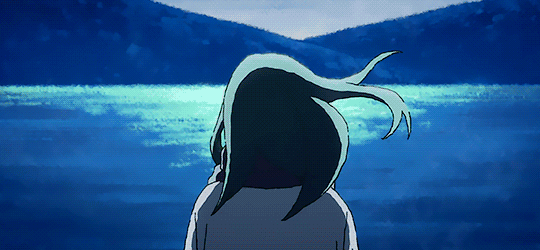



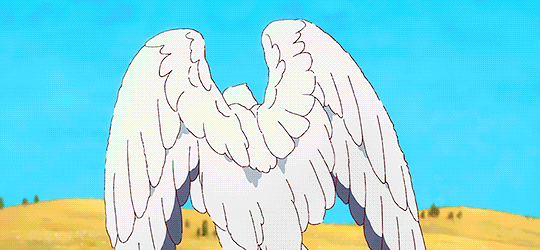
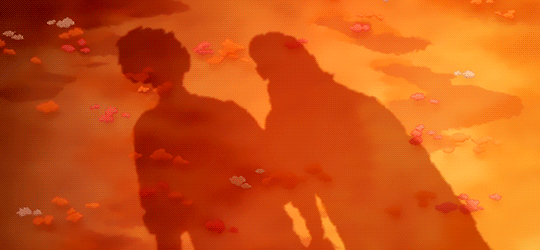


Shingeki no Kyojin: The Final Chapters Ending ↳ Itterasshai (See You Later) - Ai Higuchi
#snkedit#snkgraphic#mikasa ackerman#eren yeager#eren jaeger#eremika#shingeki no kyojin#attack on titan#snk#aot#dailyanime#shounenedit#anisource#fyeahanimegifs#*edits#*gifs#eremikaedit#2023#c
2K notes
·
View notes
Text

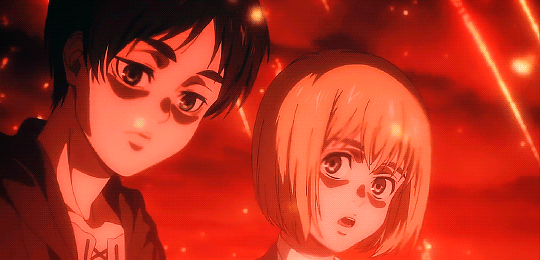
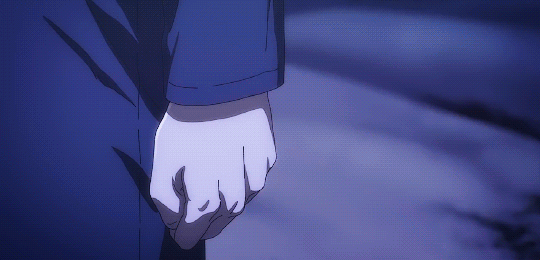
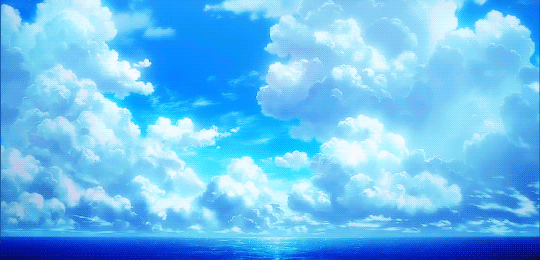
The places we wanted to go.
#erearu angst hitssss sooooo hardddd :c#shingeki no kyojin#attack on titan#snkedit#snk spoilers#armin arlert#eren jaeger#eren yeager#anime gif#animeedit#eri gifs#anime#*#snk#aot
1K notes
·
View notes
Text
Annabeth fell first, Percy fell harder
Will fell first, Nico fell harder
Alabaster fell head first and broke his nose, Ethan is doing fine
#i love them#alabaster pjo#alabaster c torrington#alabaster torrington#ethanbaster#and once again#do we fw with ethanbaster in this economy?#ethan nakamura#the titan army#luke castellan#the seven pjo#percy pjo#silena pjo#pjo hoo toa#pjo tv show#pjo fandom#pjo series#pjo books#pjo#percy series#percy jackson#solangelo#will solace#nico di angelo#william solace#heroes of olympus#the heroes of olympus#percabeth#percy jackon and the olympians#percy jackson tv show
240 notes
·
View notes
Note
i do absolutely think Levi having some sort of sexual trauma has been built upon over the years. There’s just so many small things that point to that kind of trauma, and Bad Boy just compounds on those things.
his aversion to sleep has always been very strange to me, he doesn’t even lay down to do so and only ever gets a few hours. it could just be a general unease/feeling a lack of safety but Levi isn’t exactly an outwardly anxious person. im sure his ability to sustain himself on only a few hours of sleep has something to do with his Ackerman power, but he almost seems to have a tendency to avoid laying in beds as a whole. i’m not sure we ever see him in one (perhaps the barracks in No Regrets?) outside of his major injury towards the end.
honestly even though his obsession with cleanliness can be associated with growing up in a dirty environment like the underground (very common IRL w people who grow up in poverty or hoarding etc) something about it always raised an eyebrow to me. feeling somehow “filthy” in a way that is difficult to shake is a very common trauma response for SA victims. He’s also particular with human gore in a way he isn’t with Titan gore. to be fair Titan blood literally steams off, but idk the elaborate get up in the torture scene stick with me, why is a guy who constantly cuts down giant meat monsters full of blood and sinew suiting up with an apron and rubber gloves to punch a human?
When Kenny finds him with Kuchel’s body he’s only wearing of one of her old shirts (if i remember right) which could also be just associated with the neglect he faced as Kuchel’s health declined and she wasn’t able to keep working, but it could absolutely have much worse implications. he’s surely under-clothed for a child that age.
and speaking of Hange i think this is also a huge indicator of how important their friendship w Levi was. i think the “Levi has to knock Hange out to bathe them” lore was mostly a joke, but i absolutely believe that Hange would have a knack for working themselves into exhaustion and neglecting their personal hygiene and the fact that Levi, who is adverse to dirtiness and probably physical touch, would still be willing to help Hange take care of themselves on that level is very important to me.
idk, again there’s just so many small things that compound. i think ppl who refuse to even consider that possibility are ignoring a huge subtext in his writing.
the writing in Bad Boy reminds me a lot of an RPG character from Dragon Age called Zevran, who has a very similar backstory (prostitute mother, grew up in a brothel after she died giving birth) and SA/sex trafficking is a huge part of his writing, it’s never explicitly said but he gets incredibly close to saying it multiple times.
Absolutely, anon, I'm really glad you brought this up. I agree with you. Your observations are thoughtful and deeply grounded in the subtle, but persistent, cues throughout Levi’s characterization. There’s a strong case to be made that Levi’s childhood experiences, especially as hinted in Bad Boy, suggest sexual trauma as part of his backstory, and I agree that this thread has been quietly but consistently built over time across multiple Attack on Titan texts, including the main canon itself, Bad Boy, and the A Choice with No Regrets manga and OVA.
I’ll be honest, though; I sat on this ask for a little while. Not because I disagreed, but because I’ve grown cautious about diving back into this particular conversation, lol. I hope you're still around to read my response! There’s been pushback in the past, and it’s easy to get worn down by the defensiveness and bad-faith interpretations that inevitably come with it. But ultimately, I don’t want fear of fandom backlash to silence a valid reading of the text.
Just to be clear, I’m not saying there’s any explicit confirmation that Levi was sexually abused. What I am saying is that there is a consistent body of subtext—textual, visual, and behavioral—that makes this interpretation both plausible and worth discussing. It’s one lens among many, and it’s one that aligns with real-world trauma responses in a way that deserves thoughtful attention.
For anyone curious and looking to read more on this topic, including some of my older posts and others’ contributions, here are a few links:
To actually address your message and your points, anon:
When Kenny first discovers Levi, the imagery is haunting. Levi appears severely malnourished, neglected, and ghost-like. He’s wearing only a shirt, which not only suggests poverty but also emphasizes how profoundly vulnerable he is. While it’s never confirmed whether the shirt belonged to Kuchel, the idea that it might have is a valid and plausible headcanon. What is confirmed is that Levi is shown curled up on the floor in the same room as her decomposing body, completely alone. In the context of a brothel—where Kuchel worked as a sex worker and where strangers would have regularly entered and exited the space—Levi’s state of undress takes on more disturbing implications. We never learn who had access to that room after Kuchel’s death, nor how long Levi was left to fend for himself there. And as you pointed out, for a child that age to be so underclothed in such a setting is more than just a sign of deprivation—it casts a shadow over the kind of dangers he may have been exposed to during that time.
Now, I’m aware there’s some debate in the fandom about whether Levi and Kuchel actually lived in the brothel where she worked. Personally, I do believe they did. But even if they didn’t, Kuchel’s notoriety as "Olympia"—a well-known prostitute—means that clients familiar with her could very well have come looking. Regardless of the precise location, the threat would have remained the same.
It’s also important to consider how the Attack on Titan universe establishes the Underground as a site of rampant exploitation, especially sexual violence and trafficking. In "Chapter 6: The World that the Girl Saw", we learn that Mikasa, who lived on the surface, was nearly trafficked into sexual slavery. The traffickers planned to sell her specifically to the Underground, where such exploitation was evidently common and profitable. If that was the fate planned for a surface child, it paints a grim picture of what life must have been like for children born in the Underground. Levi wasn’t just born there—he was the son of a sex worker, raised alone in a brothel after her death. In Bad Boy, we see that even as a child, Levi was almost sold into the same system by thugs looking to profit off him. On top of that, he was well-known locally as a “whore’s son,” a stigma that would have marked him as vulnerable. Given this context, and considering how openly the narrative depicts trafficking as a real danger even for children with more protection than Levi had, it’s tragically plausible that Levi endured violations that the text never directly names. Whether or not his trauma is ever confirmed in explicit terms, the setting, circumstances, and behavioral cues all suggest that he was not spared from the kind of exploitation that was normalized in the world he grew up in.
A Choice with No Regrets further deepens this portrait of Levi. As an adult in the Underground, he’s strikingly hyper-independent, emotionally guarded, and instinctively distrustful. His stoicism goes far beyond what would be considered adaptive for someone in a harsh environment—it reads instead as the psychological armor of someone who learned, early and brutally, that vulnerability is dangerous. What’s telling is how this contrasts with Furlan and Isabel, who also grew up in the Underground but retain a more open emotional register. Levi, by contrast, keeps himself closed off—even from those he clearly cares about. Another subtle but telling detail is his relationship to sleep. As you noted, Levi rarely lays down to rest. Even after Return to Shiganshina, when he’s critically injured, we only see him in bed when he’s completely incapacitated. His irregular sleep habits suggest that rest—and the vulnerability it entails—is something he instinctively avoids. It’s also worth noting that Isayama has confirmed in interviews that Levi typically sleeps in a chair. That choice feels significant: what is it about beds, specifically, that feel unsafe to him? It’s a small detail, but one that subtly reinforces the idea that Levi's avoidance of rest is tied not just to environmental danger, but to deeper psychological trauma.
One moment from A Choice with No Regrets that I think is often overlooked—or, worse, completely misread—is the scene in the manga where Levi kills Isabel’s attacker. There’s a strong implication that the man had either raped or was planning to rape her. Isabel returns visibly shaken, and the fact that her hair was forcibly cut—while some try to minimize this—is itself a physical violation. That kind of act doesn’t happen without bodily restraint, humiliation, and intent to dehumanize. Levi’s reaction isn’t casual vengeance or impulsive rage. It’s swift, cold, and deliberate. And it stands out all the more because Levi is consistently portrayed as someone who does not enjoy killing, especially when it comes to other humans. He doesn’t take satisfaction in it, and he’s shown to feel the weight of taking lives. But in this moment, he kills with no hesitation. That’s not just about protecting Isabel; it’s also about what that kind of violation represents to him. This scene adds another layer to the subtext that Levi may have experienced sexual trauma himself. His actions suggest not just outrage on her behalf, but a deep, visceral recognition of what was done to her. When you consider his background—being raised in a brothel, growing up in a community where sexual violence was commonplace, and being personally threatened with it—his response in this scene becomes far more layered. It's not about bloodlust; it's about survival and protection.
As for his obsession with cleanliness, I completely agree that it likely stems from both his impoverished upbringing and something deeper. Like you stated, the trauma of feeling “unclean” in a psychological sense is a known marker in many survivors of sexual abuse. Levi doesn’t just value hygiene—he’s almost compulsive about it. In chapter 15, when he enters Trost HQ, his first instinct is to clean, even in the midst of military chaos. It’s a trait that speaks to more than just surface disgust; it feels ritualistic, like he’s trying to scrub away something intangible. We also know from the Smartpass AU Levi Close-up Report that part of the reason Levi cares so much about cleanliness is because he associates filth with disease. That alone demonstrates that the cleaning is a coping mechanism for something greater.
The A Choice with No Regrets OVA also contributes to this subtext in a subtle but unsettling way. In one sequence, a group of thugs corner Isabel, and after she bites one of them, he implies he wants to assault her—saying, “She’ll pay for bitin’ me. Lemme have some fun with her before we do anything else, ’kay?” Levi isn’t present for that threat, but it establishes that these men are sexual predators and underscores how normalized sexual violence is in the Underground. Shortly afterward, when Levi confronts the same group, one of the thugs touches the collar of Levi’s shirt. Levi immediately recoils and snaps, “Keep your filthy hands off me. I don’t want you smudging my shirt.” His tone is cold and sharp—disproportionately intense for such a minor touch, unless read through the lens of trauma. What’s especially notable is how Furlan quickly intervenes, almost too casually, saying, “Sorry, 'bout that. We're clean freaks here. You prob'ly shouldn't come back, but if ya do, be sure to wash your hands first.” It’s a strangely timed comment, bringing up hygiene in the middle of a tense confrontation, and it reads more like a deflection than comic relief, at least to me. Furlan’s response seems like a practiced redirection, as if he’s accustomed to covering for Levi in moments like this, aware that Levi’s aversion to touch and obsession with cleanliness may stem from something deeper. The way Levi reacts to even an incidental touch, especially from a man he clearly perceives as threatening (and was established as a sexual predator earlier), raises red flags. Within the broader context of the Underground, where exploitation is rampant and children are especially vulnerable, this interaction adds another layer to the growing subtext that Levi’s boundaries around touch aren’t just about personal preference, but about learned survival.
A common counter-argument I’ve seen is that Levi couldn’t have experienced sexual abuse because, in Bad Boy, when the thugs threaten to sell him into sexual slavery, he awakens his Ackerman powers and kills them. But I think this interpretation misreads both the mechanics of his awakening and the emotional weight of that scene. Levi doesn’t react violently when the men first threaten to traffic him. In fact, he stays relatively passive through much of the assault, even as they kick him and beat him down. What ultimately triggers his Ackerman powers isn’t the threat of trafficking alone—it’s a combination of two far more visceral elements: first, the insult to his mother (“whore’s son”), which cuts directly at the only attachment and source of comfort he’s ever known; and second, the imminent threat to his life. When the men begin slamming his head into the ground, it’s not just brutal—it would have been fatal. That moment of near-death, combined with emotional provocation, is what pushes him to awaken. This is consistent with how Ackerman power is described elsewhere in canon: it’s often activated in a life-or-death situation.
Importantly, most sexual trauma, especially in childhood, is not marked by that same level of immediate physical lethality. It’s often coercive or normalized within the environment, particularly when it occurs repeatedly over time. If Levi had experienced prior instances of sexual trauma, there’s no reason to assume his powers would have activated. The context simply wouldn’t have matched the threshold required. What Bad Boy shows us, in fact, is how long Levi endures violence without fighting back. His gentle, quiet demeanor in that scene says a lot; he’s not someone who reacts with aggression instinctively. He internalizes pain. He withdraws. And that, in itself, is a trauma response. The idea that Levi could only have been victimized if he had physically fought back or "activated" sooner misunderstands both trauma and how the Ackerman lineage functions in canon.
And yes, the way Levi interacts with Hange is one of the clearest examples of how touch and boundaries operate differently for him with people he trusts. The oft-joked “Levi knocking Hange out to bathe them” anecdote, while humorous in fandom circles, does imply a certain level of trust and care on his part that cuts directly against his usual physical avoidance and aversion to filth. If you believe Levi is touch-averse because of trauma, then the fact that he’ll tend to someone else’s body—grime, sweat, and all—speaks volumes. It reflects a profound emotional bond.
Btw, I've never played Dragon Age, but I agree that the situation with Zevran sounds similar to the situation with Levi. Isayama never explicitly states that Levi was sexually abused—but neither does he shy away from leaving the space open.
The resistance from some parts of the fandom to even consider this reading is telling. It reveals discomfort not just with the possibility of Levi being a victim, but with the idea that masculinity and vulnerability can coexist. For some, Levi must remain a stoic archetype of masculinity, not someone whose past might include being violated or exploited. But the reality is that Attack on Titan is saturated with trauma, and Levi’s trauma is one of the most underexplored and underacknowledged parts of the narrative, precisely because it’s so coded in subtext.
In short, the subtext is there. The behavioral patterns are consistent. And your instinct to read between the lines is absolutely justified. Bad Boy doesn’t explicitly confirm that Levi was sexually abused, but it significantly strengthens the already persistent implication. Acknowledging that possibility isn’t reaching—it’s a valid interpretation of the character and the narrative choices surrounding him.
Thanks for the ask, anon! I hope my answer was interesting to read.
#attack on titan#levi ackerman#shingeki no kyojin#shingeki no kyoujin#aot#snk#aot meta#snk meta#levi#captain levi#aot levi#levi aot#aot.meta#meta.levi#c: levi ackerman#my thoughts#it's kind of sad I felt the need to add so many disclaimers to this post lol#but I'm very wary after all the fandom discourse on this subject in the past#asks#anon asks
86 notes
·
View notes
Text
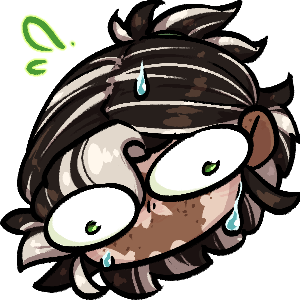
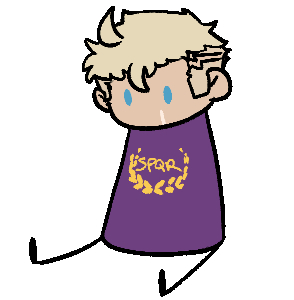
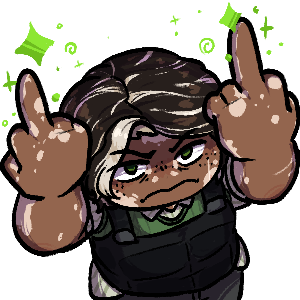
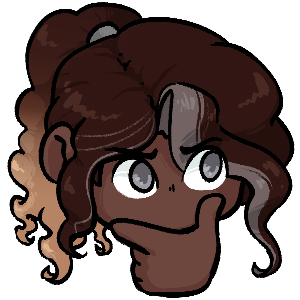
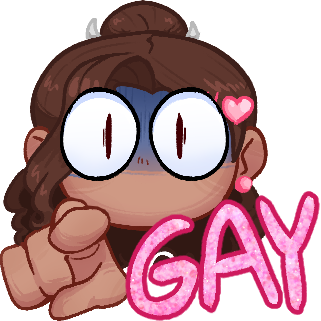

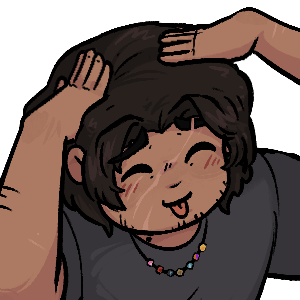

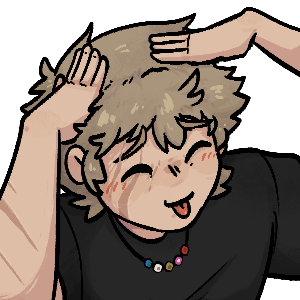

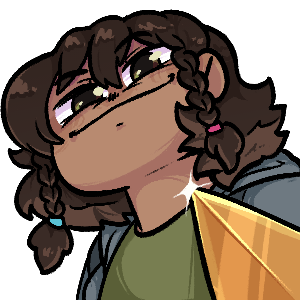
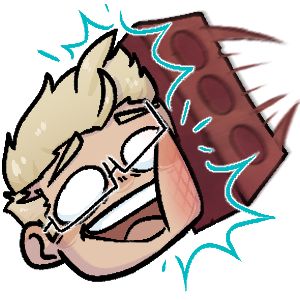
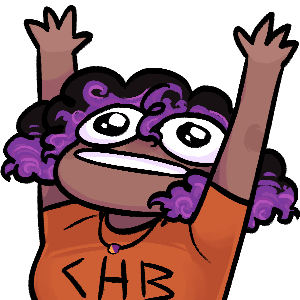

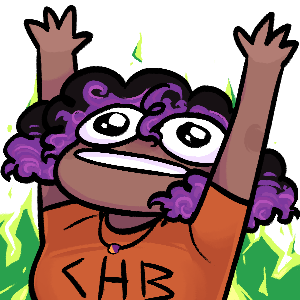
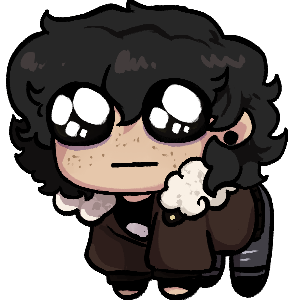

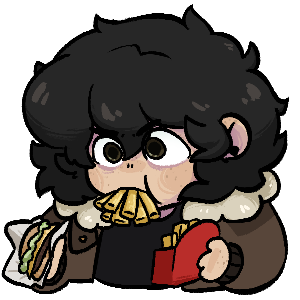
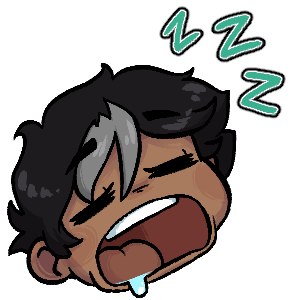
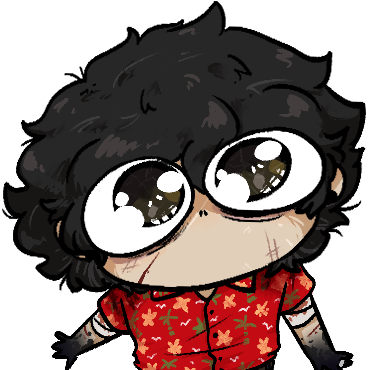
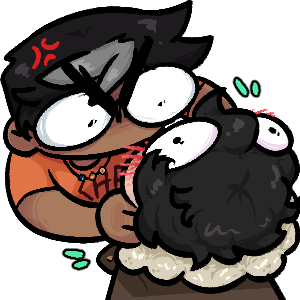
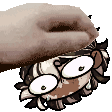
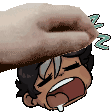
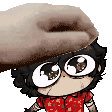
an update to the collection of pjo emotes i've made recently for discord
as per usual these are free to use on your own discords or for personal use.
#pjo#riordanverse#alabaster torrington#jason grace#alabaster c torrington#annabeth chase#silena beauregard#chris rodriguez#alison pjo#luke castellan#piper mclean#lou ellen blackstone#nico di angelo#percy jackson#gif#gifs#my art#titan army#TA server fuels me to make TA emotes
911 notes
·
View notes
Text
ALABASTER C. TORRINGTON ANYONE??

“Don’t think twice- you’ll be dead in a second.
Turn your eyes from your hands to the heavens.
Kill your pride, turn your fear to a weapon,
And don’t you forget it.”
The Ethan one
Pfffff the lyric got long but like how was i supposed to cut any of that out come ooooooon
@drksanctuary the tag you requested (also thank you for in turn motivating me to actually do this fjdjhvhfjdjdj)
Also like look at him and Ethan lined up


I don’t ship them bc like platonic stuff is my favorite but like I want them to be the bestest of friends and this is me fulfilling that ig ahhhhhhhhh I have these drawings titled “stuck in a box” bc of just first thing in my brain but it kinda fits the vibes I feel
Ok yapping over I’m tired now dnckdhfihdvihdfiheivhiehvih
#pjo#percy jackon and the olympians#pjo fanart#alabaster torrington#alabaster c torrington#pjo alabaster#pjo al#titan army#pjo titan army#jadethebluearts
127 notes
·
View notes
Text
Headcanon that Teruki's powers act involuntarily whenever he is under too much stress because he was traumatized multiple times during his formative years, so his body is fully willing to exhaust his ESP reserve to stop him from dying.
Sure, part of his training was controlling this defense mechanism; he couldn't afford being out of energy while facing Claw. However, it's very, very hard to stop unconscious processes. As a consequence, it always finds a way to manifest itself in the most inconvenient ways (i.e. failure fevers). On the other hand, this mechanism is what saves him from injuries as dire as the ones he got in Confession Arc. Teruki only gets away "unscathed" after facing incredibly lethal opponents because his body had to learn to be desperate.
#he spends years thinking this is just his body being weird until he discovers about c-ptsd#I really like the concept of ESP being affected by mental state#being attacked stalked and neglected quite literally shaped his powers in an unusual way#???% works similarly for mob but it is way stronger and has a whole different cause#since shigeo is a part of mob and has titanic amounts of energy#so shigeo isn't limited to plain healing and focus: he can destroy the danger while everything happens#mp100#mob psycho 100#teruki hanazawa#lalá rambling...
74 notes
·
View notes
Text
Ethan "Balance and justice must remain above all" Nakamura
Luke "The gods are unfair and cruel, I want justice for the children they killed" Castellan
Alabaster "I can kill ALL the gods with this spoon and I WILL" C. Torrington
#luke castellan#ethan nakamura#alabaster c torrington#I hate his last name its so hard to spell it right#Guess which of the idiots still alive?#riordanverse#pjo#titan army#the last olympian#son of magic#rick riodan#Percy Jackson#percy jackon and the olympians
84 notes
·
View notes